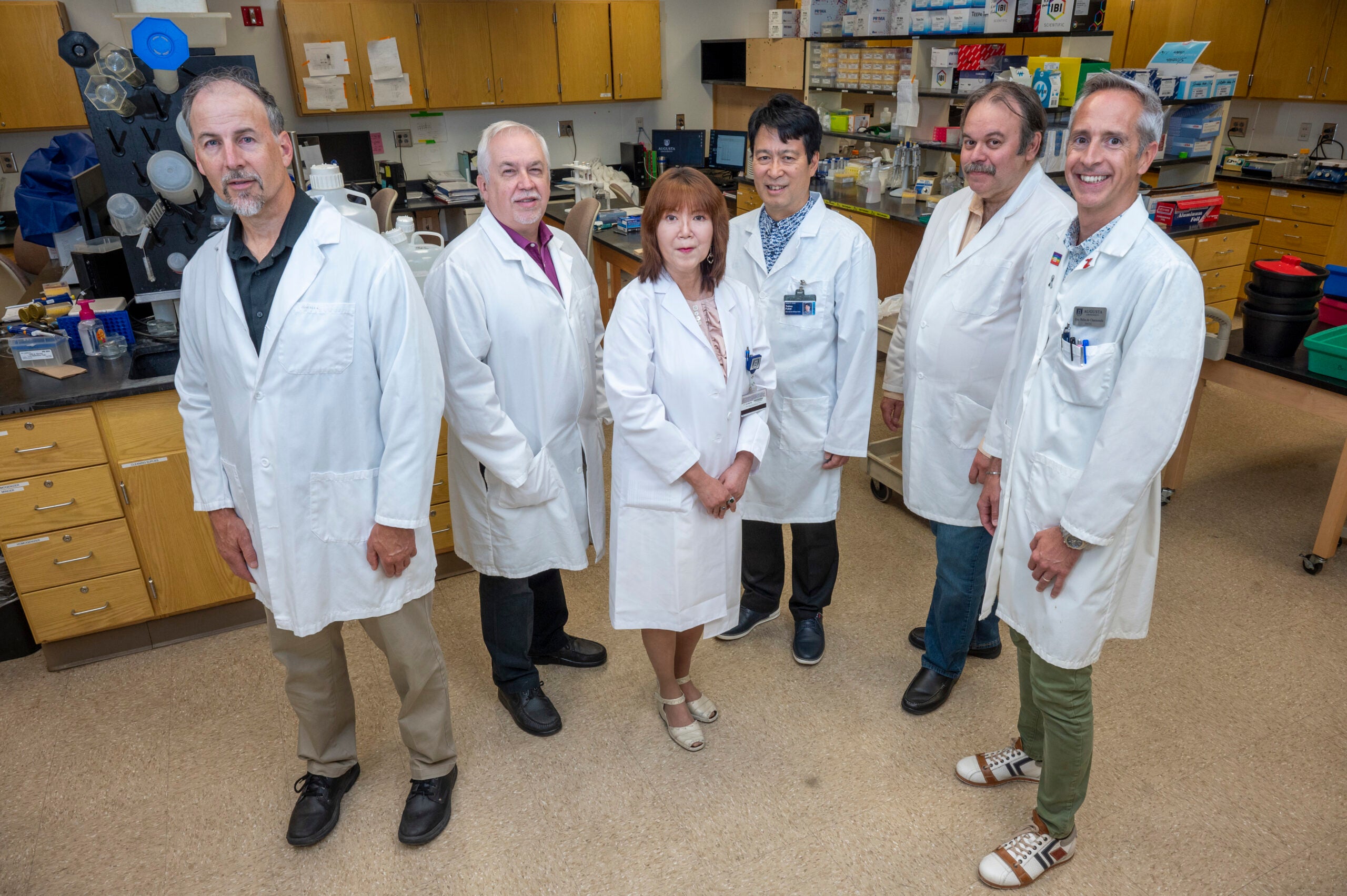With a new $11.3 million Program Project grant from the National Institutes of Health, experts from the Vascular Biology Center at Augusta University’s Medical College of Georgia are working to better understand the underlying mechanisms of vascular disease.
Co-program Director Tohru Fukal said a key regulator of blood vessel function is a thin layer of cells lining the inside of all blood vessels, known as the endothelium.
MORE: Big Lots closings narrowly miss Richmond and Columbia counties
“Blood vessels are critical for the transport of oxygen, nutrients and immune cells, and when they don’t function properly it not only impacts the function of the heart, but other organs such as the lung, eye, brain and even our muscles,” said Fukal.
Those endothelial cells and finding ways to fix them when they become dysfunctional will be a critical focus of the new five-year grant.
What do endothelial cells do?
Normally, endothelial cells form a tightly regulated barrier, reduce inflammation and help blood vessels to relax, allowing blood to flow.
However, in vascular disease, when they begin to malfunction, endothelial cells cannot maintain a barrier, which leads to increased inflammation and constriction of blood vessels. This results in increased blood pressure, decreased blood flow and limited organ function.
“A key problem contributing to endothelial cell dysfunction is the loss of ‘redox balance’ between harmful molecules called reactive oxygen species (ROS) and helpful molecules like nitric oxide (NO),” said Masuko Ushio-Fukai, an MCG vascular biologist and co-program director.
Ushio-Fukai said, to date, treatments targeting this imbalance by reducing ROS and increasing NO have not been very effective.
“To develop more effective treatments, we need to understand what causes this imbalance,” she said.
According to a press release from MCG, scientists have recently reported that endothelial cells can reprogram ways they create energy to meet the demands of their local environment.
Typically, these cells rely on a healthy balance between aerobic glycolysis – a metabolic process that produces energy and regulates ROS – and mitochondrial oxidation, which generates energy, ROS and various metabolites.
Endothelial cells and vascular disease
Although, in vascular disease, the balance is disrupted and this ‘metabolic flexibility’ often results in a shift to excessive glycolysis, which can actually shift redox balance in a negative manner.
“We don’t fully understand the mechanisms regulating the relationship between endothelial metabolism and ROS/RNS balance and how it becomes altered in vascular disease,” Fukai said.
Fukai also said MCG’s program will investigate how the imbalance between endothelial metabolism and ROS/RNS, that is induced by various risk factors, promotes endothelial dysfunction and vascular disease.
With approximately 83 million people having one or more forms of vascular disease in the nation alone, MCG believes a collaborative approach is required to make headway on the origins of such a prevalent and complicated problem.
MCG program
The medical college’s program will consist of three projects and research teams, which will feature Fukai, Ushio-Fukai, Eric Belin de Chantemele, David Fulton, David Stepp and Rudolf Lucas.
The five-year project will also include the use of shared models and resources, tightly integrated projects, the support of administration, and animal and analytic cores.
Fukai, who also serves as the Barbara A. Schnuck Endowed Chair in Translational Medicine and as professor in the Department of Pharmacology and Toxicology, will be investigating how altered copper metabolism, due to the dysfunction of the copper exterior, leads to excessive glycolysis, redox imbalance, mitochondrial changes and ultimately endothelial dysfunction, which accelerates atherosclerosis.
Chantemele, a professor of medicine, and Fulton, director of the Vascular Biology Center, will study how sex-specific mechanisms involving Nox1, a key source of ROS, and leptin, impact endothelial cell metabolism and function, as well as vascular diseases, such as hypertension.
Meanwhile, Ushio-Fukai, director of the Redox Signaling Program and a professor in the Department of Medicine, will examine how mitochondrial dynamics coordinate crosstalk between mitochondrial redox signaling and endothelial glycolysis to regulate new blood vessel formation.
Ushio-Fukai will also investigate blood vessel growth using an animal model of peripheral arterial disease with diabetes, which results in excessive glycolysis and increased ROS signaling.
The Program Project grant will also be supported by trainees, technicians and administrative staff, and will bring together experts from across MCG and other universities with the common goal of reducing one of the nation’s top killers.
For more information about MCG’s Vascular Biology Center, visit: https://www.augusta.edu/centers/vbc/index.php











